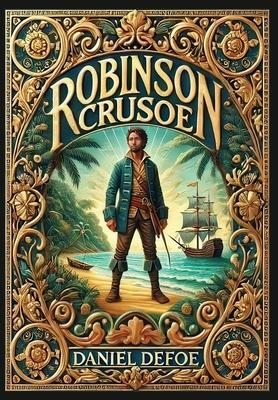Castaway on a remote, untamed island after a violent shipwreck, a lone survivor is thrust into a relentless battle against nature, isolation, and his own mind. With every passing day, he adapts and learns to harness the land's resources, transforming from a helpless victim to a skilled survivalist. But just as he begins to carve out a semblance of life, strange footprints in the sand reveal an unsettling truth-he may not be as alone as he thought. This discovery turns his world upside down, sparking a tense journey of survival, resilience, and the search for connection in the wilderness.
Robinson Crusoe is more than just a survival story-it's one of the first novels in the English language, marking a turning point in literary history. Through Crusoe's tale, Defoe explores themes of individualism, colonialism, and human resilience, reflecting the growing spirit of exploration and empire in the 18th century. The book's detailed realism and focus on a single protagonist's inner thoughts paved the way for modern novels. Its impact endures, as Robinson Crusoe continues to shape storytelling about survival, self-reliance, and the quest for connection against all odds.
